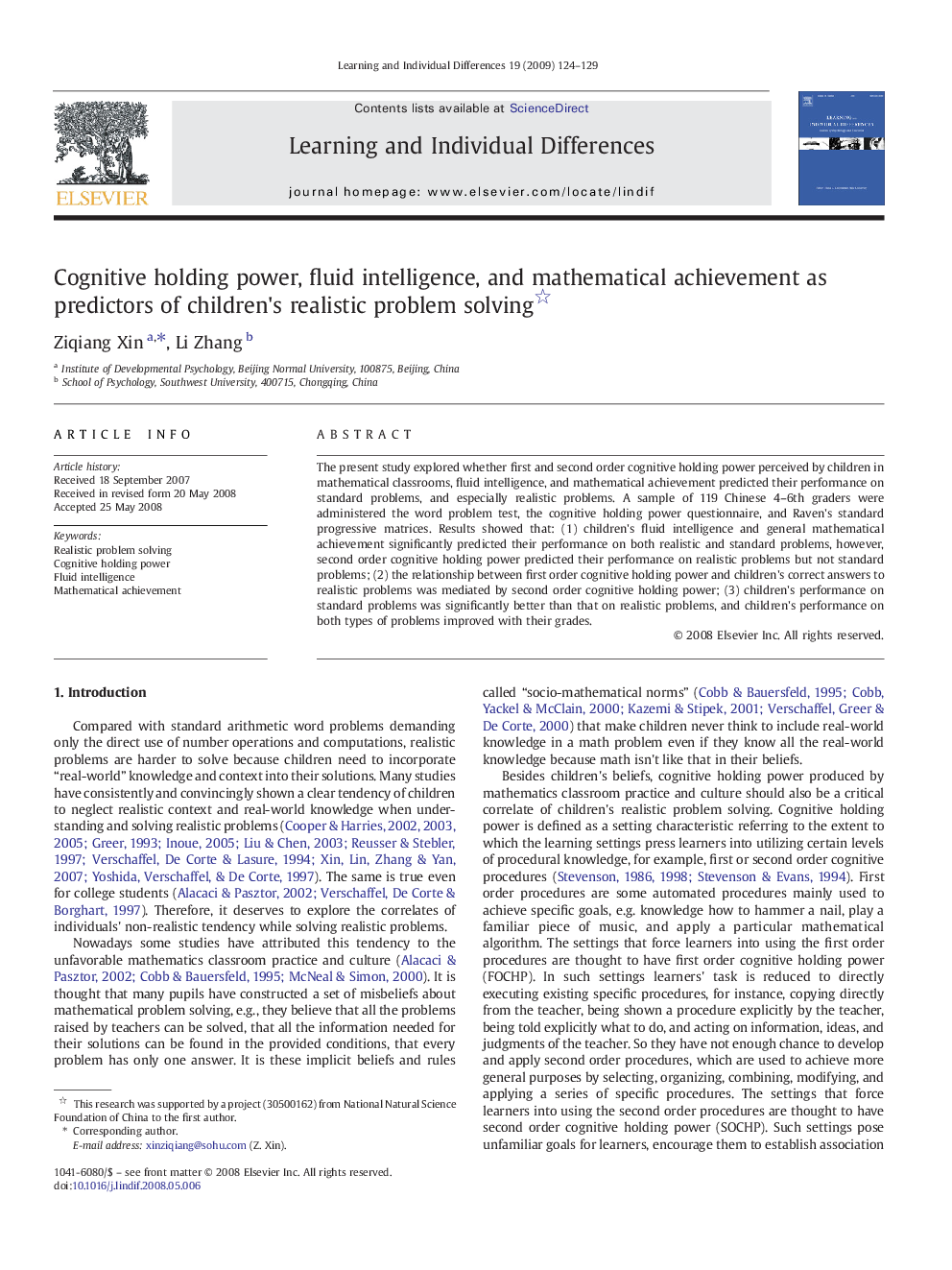| Article ID | Journal | Published Year | Pages | File Type |
|---|---|---|---|---|
| 365278 | Learning and Individual Differences | 2009 | 6 Pages |
The present study explored whether first and second order cognitive holding power perceived by children in mathematical classrooms, fluid intelligence, and mathematical achievement predicted their performance on standard problems, and especially realistic problems. A sample of 119 Chinese 4–6th graders were administered the word problem test, the cognitive holding power questionnaire, and Raven's standard progressive matrices. Results showed that: (1) children's fluid intelligence and general mathematical achievement significantly predicted their performance on both realistic and standard problems, however, second order cognitive holding power predicted their performance on realistic problems but not standard problems; (2) the relationship between first order cognitive holding power and children's correct answers to realistic problems was mediated by second order cognitive holding power; (3) children's performance on standard problems was significantly better than that on realistic problems, and children's performance on both types of problems improved with their grades.
